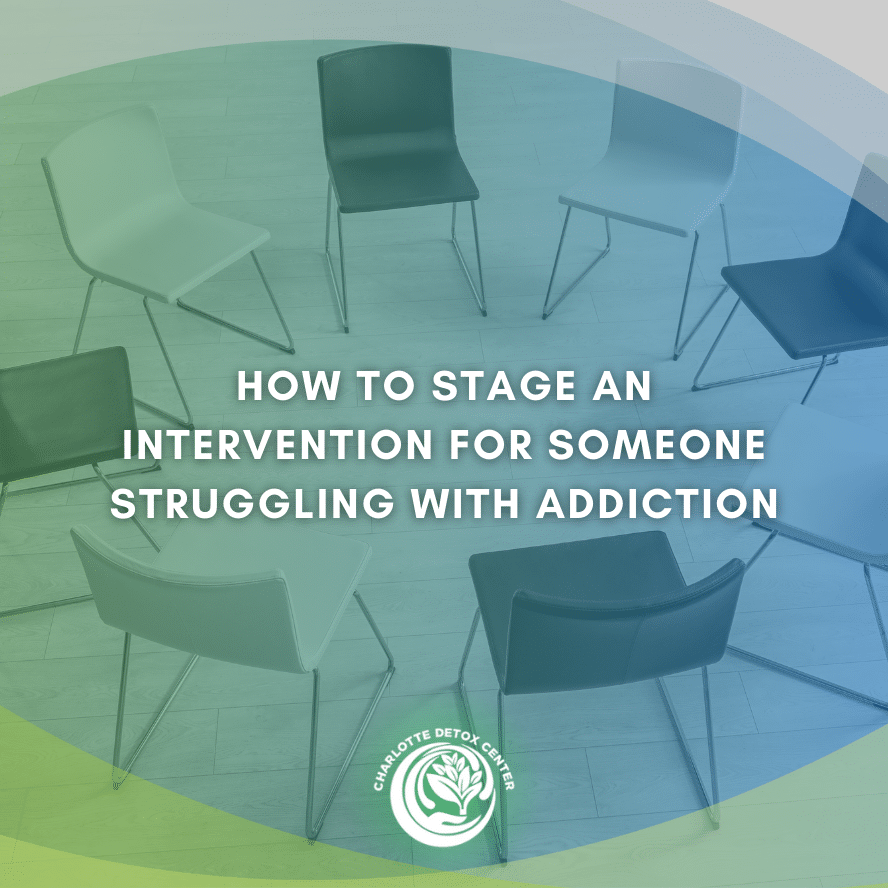How to Stage an Intervention for Someone Struggling With Addiction

Medically Verified: 2/1/24
Medical Reviewer
Chief Editor

All of the information on this page has been reviewed and verified by a certified addiction professional.
Many people may be familiar with the idea of an intervention from a popular reality TV show about the process. Generally, an intervention is a planned event with the goal of getting a person to agree to go to rehab. It involves a person’s loved ones explaining how the addiction has affected them and asking them to begin addiction treatment immediately. An intervention is most likely to be effective when it is calm and supportive.
But how do you know when it is time to stage an intervention? And what steps should you take to make sure it is effective? Learn more about when and how to stage an intervention for an addicted person you care about.
When is the Right Time to Stage an Intervention?
Recognizing the symptoms of addiction is the first step toward helping someone get the treatment they need.
Some signs that your loved one is living with addiction include:
- Lying or being secretive about their substance abuse
- Falling behind at work, school, or responsibilities at home
- Changes in their mood, sleep, or appearance
- Becoming preoccupied with drugs or alcohol
- Spending significant time getting, using, or recovering from using the substance
- Financial or legal trouble related to substance use
- Accidents or injuries caused by substance use
- Requiring more of the substance to get the same effects (tolerance)
Recognizing these symptoms could mean that the person is living with substance abuse and requires treatment to overcome it.
Taking Steps to Stage an Intervention
Hiring a professional interventionist can help you stage an intervention successfully. A trained professional offers support to you and your group before, during, and after the intervention. They can provide valuable insight, resources, and referrals that make the process as easy as possible.
There are several steps you should take to stage an intervention. Planning, preparation, and practice are essential.
1. Choose who will attend.
Invite people close to the addicted person who have been affected by their addiction. In most cases, this will be only immediate family and friends. It is essential to exclude anyone struggling with their addiction or who may be under the influence of drugs or alcohol. You may also want to exclude people who may shame the addicted person or become angry. The focus of an intervention must be on supporting the addicted person.
2. Decide who will speak.
You should allow enough time for people to offer brief statements about their concerns for the addicted person. Do not force people to speak if they do not feel comfortable. Decide who will speak and in what order so everyone there can be on the same page.
3. Choose a private location.
To stage an effective and sensitive intervention to the addicted person’s needs, hold it in a location that allows you enough space and privacy. An intervention is often an emotional event, and people generally want privacy so they can be honest and vulnerable. Privacy will also help addicted people feel as safe and comfortable as possible.
4. Select a time when your loved one is unlikely to be intoxicated.
Consider your loved one’s schedule and choose a time when they are less likely to be under the influence of drugs or alcohol. If the person is intoxicated at the time of the intervention, you may have to postpone it until another day.
5. Hold the intervention.
Have a list of treatment options available before beginning the intervention. During the intervention, you and the others should remain calm and stay focused on following the schedule you made during the planning stage. Avoid shaming and blaming the addicted person. Allow your loved one to speak and listen to what they say, but make it clear that there will be consequences if they do not go to treatment.
6. Help your loved one get into treatment or hold firm boundaries if they decline treatment.
If the addicted person accepts your offer to begin treatment, help them get started as soon as possible. If they do not agree to go to rehab, you and the others must stick to the boundaries you decided on while planning the intervention. Appropriate boundaries might include not giving the addicted person money, not covering for them at work, or other relevant consequences.
7. Check in with the others involved in the intervention.
Whether the addicted person accepts treatment or not, an intervention can be stressful or emotional. Check in with the other people involved in the intervention to see what went well and what could have gone better. Ensure that others have the support they need to manage the stress of an intervention and find the help you need, too.
Get Help Now
If you need to stage an intervention for a loved one, require addiction treatment, or want more support during recovery, reach out today to the Charlotte North Carolina Detox specialists today.
